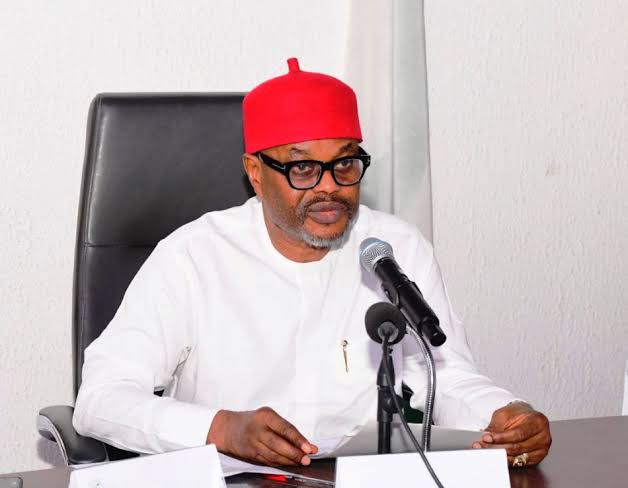Uche Nnaji, the former minister of science and technology, alleges political witch-hunt as reason for resignation
Abuja, Nigeria
Nigeria’s president, Bola Ahmed Tinubu, has accepted the resignation of the Minister of Science and Technology, Uche Nnaji, following a forgery scandal that has raised serious questions of integrity among members of the president’s cabinet.
A report that emerged from investigations by the popular Nigerian online platform, Premium Times, claim Nnaji confessed in court documents that the University of Nigeria (UNN), which he claimed to have obtained his degree from, never issued him the Bachelor of Science degree he presented for decades, including during his 2023 Senate vetting.
The minister, however, insisted that his resignation was not an admission of guilt and that the claims were false. He said he formally tendered his resignation to the president after a “sustained campaign of falsehood, politically motivated and malicious attacks” against his person, integrity, and office. “These unfounded allegations and media distortions have not only caused personal distress but have also begun to distract from the vital work of the ministry and the Renewed Hope Agenda of Mr President,” he said.
The online platform stated that the minister’s admission, uncovered by a two-year investigation launched in October 2023, confirmed that he forged both his degree and National Youth Service Corps (NYSC) certificate, a proof of the mandatory national service.
The scandal has ignited national scrutiny of political integrity and the vetting processes for its leaders. The controversy emerged in July 2023 when Tinubu, elected after a contentious 2023 contest, nominated Nnaji among his initial 28 ministerial nominees, two months after taking office on May 29, 2023.
Premium Times’ exhaustive probe, supported by UNN’s official denial and a Federal High Court ruling rejecting Nnaji’s bid to suppress his academic records, revealed critical discrepancies. UNN’s Vice-Chancellor, Simon Ortuanya, and Registrar, Celine Nnebedum, confirmed that Nnaji abandoned his studies in 1985 without graduating, invalidating the certificate submitted to the Senate and Tinubu.
The NYSC also disputed his service record, noting his claimed 13-month tenure conflicted with the standard 12-month requirement. Nnaji’s confession surfaced in a lawsuit against UNN, where he sought his academic transcript, inadvertently exposing his lack of credentials.
This has sparked outrage as some prominent Nigerian activists have questioned the Tinubu government’s legitimacy. Key questions have emerged from the debacle. Some political watchers have asked how forged documents bypassed Nigeria’s multi-layered vetting process, involving the Presidency, Senate, State Security Service (SSS), and Secretary to the Government of the Federation (SGF).
There are also growing debates about what this reveals about governance standards in the country. It is not certain if Nnaji would face legal consequences or if this would trigger a wider credential audit.
Many say, judging from history, these scenarios are highly unlikely. Nigeria’s history of certificate forgery among public officials is a recurring concern, drawing parallels with past cases that escaped robust accountability. In 2000, Salisu Buhari, former Speaker of the House of Representatives, resigned after admitting to fabricating a University of Toronto degree, a scandal that faded without systemic reform.
This incident, and some other such allegations oslf credential fraud that were unsubstantiated, highlight a systemic flaw where educational qualifications, legally requiring only a school-leaving certificate for office, are either ignored or manipulated.
Beyond the national scandal, Nnaji’s resignation is deeply entwined with a political power struggle in his state, Enugu. Reports suggest Nnaji’s fall was partly orchestrated by the state governor Peter Mbah, who had been having a running political battle with Nnaji. Some have alleged that he leveraged the forgery allegations to neutralise Nnaji’s opposition to his potential defection to the ruling All Progressives Congress (APC).
Nnaji, a former APC contender in the 2023 gubernatorial race, had resisted Mbah’s move, fearing it would bolster Mbah’s 2027 ambitions. Some reports have claimed that Mbah’s long-standing business ties with Tinubu in Lagos, dating back years, may have facilitated this realignment in spite of Mbah’s current Peoples Democratic Party (PDP) affiliation.
The DSS investigation into Mbah’s own NYSC certificate in 2023 highlights systemic record-keeping failures, suggesting that such controversies are often strategically weaponised rather than resolved with evidence.
With Nnaji’s resignation, some pundits say, Mbah’s path to APC appears clearer, raising questions about the extent to which personal and political rivalries shape Nigeria’s governance. The governor has, however, not made any public statements about an intention to defect from his current party.
One local commentator who spoke with West Africa Report said Nnaji’s role as Science and Technology Minister, a position demanding technical expertise, further highlights the scandal’s severity. “His forged credentials suggest a career built on deceit, raising doubts about his capacity to lead innovation in a country pivotal to Africa’s technological growth,” he said.
Many believe this scandal erodes trust in Tinubu’s government, already strained by economic woes, including the naira’s record depreciation and fuel subsidy removal protests in 2024. For international partners, the perception of an unqualified cabinet could be a major dent on the government’scredibility.
Legally, Nnaji’s actions breach Nigeria’s penal code, carrying up to seven years imprisonment for forgery. Yet, historical leniency, often tied to political influence, suggests that the repercussions will be limited.
The scandal has led many to call or Nnaji’s prosecution and a comprehensive audit of ministerial credentials. Opposition leaders and civil society have urged Tinubu to act decisively. The administration faces a critical juncture: inaction could cement a reputation for corruption, while accountability might signal reform.











